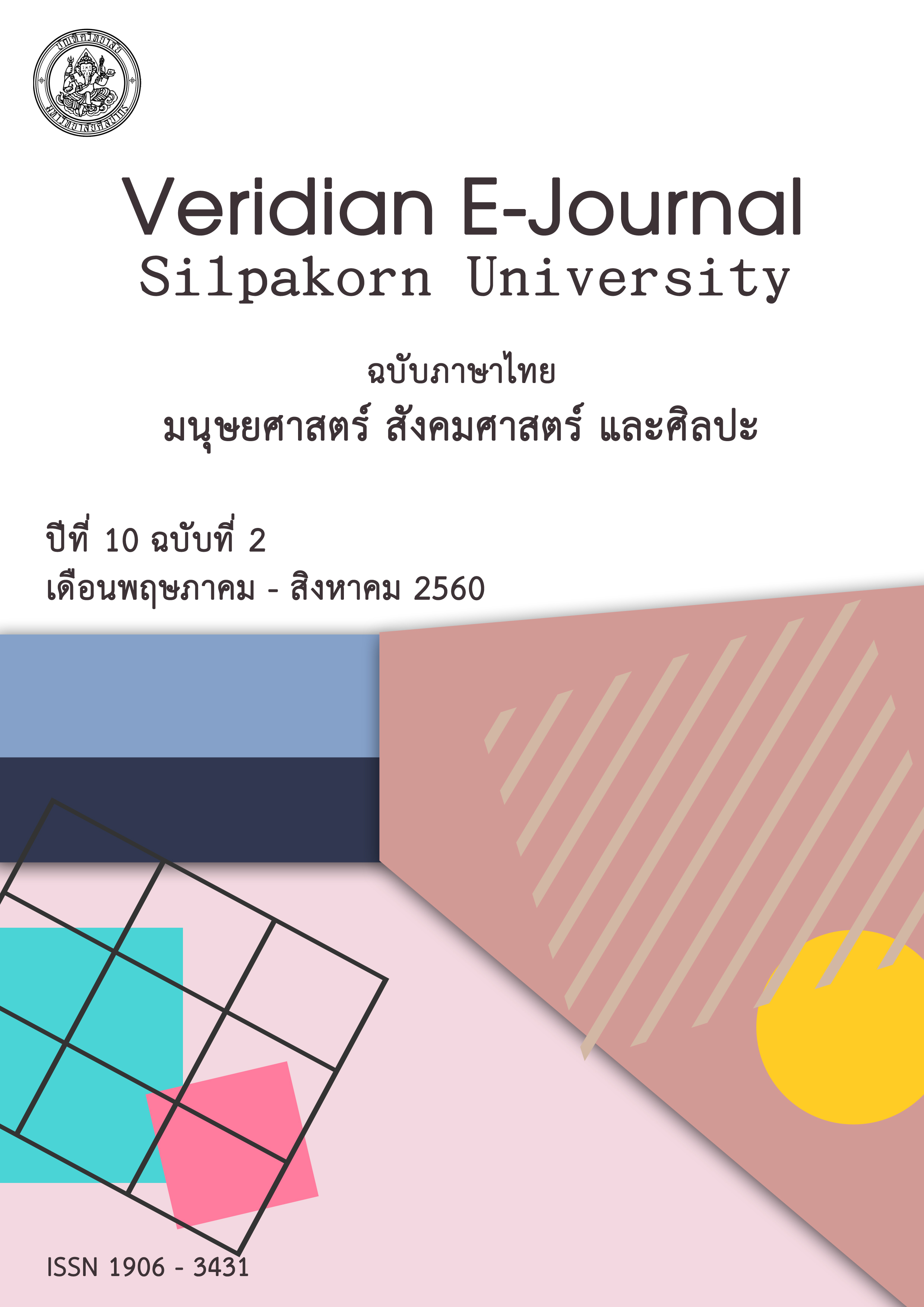การพัฒนาโปรแกรมพัฒนาเด็กปฐมวัย ตามแนวคิด Two–Generation Approach ด้วยวิธีการบริหารแบบมีส่วนร่วม
Main Article Content
Abstract
ผลการวิจัยพบว่า
1. ผลการพัฒนาโปรแกรมพัฒนาเด็กปฐมวัยตามแนวคิด Two-Generation Approach ด้วยวิธีการบริหารแบบมีส่วนร่วม ประกอบด้วย 5 ขั้นตอน คือ ขั้นตอนที่ 1 การศึกษาสภาพและความต้องการ ขั้นตอนที่ 2 การสร้างโปรแกรม ประกอบด้วย 8 องค์ประกอบ คือ 1) ชื่อโปรแกรม(Program title) 2) หลักการและเหตุผล (Rationale) 3)วัตถุประสงค์ (Objectives) 4) เนื้อหาและกิจกรรมการพัฒนา ความสามารถตามวัยของเด็กปฐมวัย (Content and activities) 5) วิธีดำเนินการ (Procedure) 6) ผลที่คาดว่าจะได้รับ (Expected outcomes) 7) วิธีการประเมินผลโปรแกรม (Program evaluation) 8)คู่มือดำเนินการ(Program manual) (1) คู่มือกิจกรรมพัฒนาทักษะการอ่านของเด็กปฐมวัย (2) คู่มือกิจกรรมพัฒนาผู้ปกครอง เรื่อง ทักษะการอ่านของเด็กปฐมวัย หนังสือเล่มเล็กและแบบติดตามผล ขั้นตอนที่ 3 การพัฒนาคุณภาพโปรแกรมเบื้องต้นขั้นตอนที่ 4 การทดลองโปรแกรม ขั้นตอนที่ 5 การหาประสิทธิผลของโปรแกรม
2. ผลการทดลองใช้โปรแกรมพัฒนาเด็กปฐมวัยตามแนวคิด Two-Generation Approach ด้วยวิธีการบริหารแบบมีส่วนร่วม พบว่า 1) ผลการวัดพัฒนาทักษะการอ่านของเด็กปฐมวัยก่อนและหลังเข้าร่วมโปรแกรมพบว่า คะแนนเฉลี่ยหลังจากการเข้าร่วมโปรแกรมสูงกว่าก่อนการเข้าร่วมโปรแกรม อย่างมีนัยสำคัญทางสถิติที่ระดับ .05 2) ผลการวัดความรู้ของผู้ปกครอง เรื่อง พัฒนาทักษะการอ่านของเด็กปฐมวัย พบว่า คะแนนเฉลี่ยหลังจากการเข้าร่วมโปรแกรมสูงกว่าก่อนการเข้าร่วมโปรแกรม อย่างมีนัยสำคัญทางสถิติที่ระดับ .05 3) ผลทัศนคติของผู้ปกครองหลังจากการเข้าร่วมโปรแกรมพัฒนาเด็กปฐมวัยตามแนวคิด Two-Generation Approach ด้วยวิธีการบริหารแบบมีส่วนร่วมพบว่า ทัศนคติของผู้ปกครองหลังการเข้าร่วมโปรแกรม โดยภาพรวมคะแนนเฉลี่ยอยู่ในระดับมาก 4) ผลการบริหารแบบมีส่วนร่วม ของผู้มีส่วนได้ส่วนเสียพบว่า การบริหารแบบมีส่วนร่วม ของผู้มีส่วนได้ส่วนเสียหลังการเข้าร่วมโปรแกรมพัฒนาเด็กปฐมวัยตามแนวคิด Two-Generation Approach โดยภาพรวมคะแนนเฉลี่ยอยู่ในระดับมากที่สุด
3. ผลการหาประสิทธิผลของโปรแกรมพัฒนาเด็กปฐมวัยตามแนวคิด Two-Generation Approach ด้วยวิธีการบริหารแบบมีส่วนร่วม พบว่า ผลของการสนทนากลุ่มตามประเด็นที่กำหนดเพื่อนำผลมาพัฒนาโปรแกรมเพิ่มเติม โดยภาพรวมกระบวนการของโปรแกรมนี้ประสิทธิผลที่ดีและสามารถนำไปใช้ได้กับบริบทอื่นประกอบด้วยองค์ประกอบ ชื่อโปรแกรม (Program title) หลักการและเหตุผล (Rationale) วัตถุประสงค์ (Objectives) เนื้อหาของโปรแกรม (Content) กิจกรรม (Activities) วิธีดำเนินการ (Procedure)ผลที่คาดว่าจะได้รับ(Expected outcomes) วิธีการประเมินผลโปรแกรม (Program evaluation)และคู่มือดำเนินการ(Program manual) 3) ผลการทดลองโปรแกรมการพัฒนาเด็กปฐมวัยตามแนวคิด Two-Generation Approach ด้วยวิธีการบริหารแบบมีส่วนร่วม คะแนนทักษะการอ่านของเด็กปฐมวัยหลังเรียนสูงกว่าก่อนเรียนอย่างมีนัยสำคัญทางสถิติที่ระดับ .05 คะแนนความรู้ความเข้าใจของผู้ปกครอง เรื่อง การพัฒนาทักษะการอ่านของเด็กปฐมวัยหลังเรียนสูงกว่าก่อนเรียนอย่างมีนัยสำคัญทางสถิติที่ระดับ .05 คะแนนทัศนคติของผู้ปกครองกับโปรแกรมอยู่ในระดับดี คะแนนการบริหารแบบมีส่วนร่วมของผู้มีส่วนเกี่ยวข้องกับการพัฒนาศูนย์เด็กเล็กอยู่ในภาพรวมระดับดี 4) ผู้ทรงคุณวุฒิ 9 ท่านทำการสนทนากลุ่มประเมินประสิทธิผลของโปรแกรมการพัฒนาเด็กปฐมวัยตามแนวคิด Two-Generation Approach ด้วยวิธีการบริหารแบบมีส่วนร่วม มีความเหมาะสมและสามารถนำไปใช้ในบริบทอื่นๆได้
This study aims to 1) create and develop an early childhood development program based on the Two-Generation approach and participatory management; 2) to experiment with the program to develop reading skills among early childhood learners based on the Two-Generation approach and participatory management as created by the researcher; 3) to identify the efficiency of early childhood reading skill development program based on the Two-Generation approach and participatory management. The sample group of this study consists of 1) three hundred and ninety three stakeholders in a childhood development center who completed questionnaires about the environment and their needs; 2) twenty stakeholders at a childhood development center who took part in the in-depth interviews in progress; 3) fifteen families of the children and the parents of those who took part in the program experiment and seven stakeholders in the childhood development center under the supervision of a local administrative organization. The data analysis consists of a t-test dependent method.
The findings of the study are as follows:
1) The results of the early childhood development program based on the Two-Generation approach and participatory management development consists of five steps which are as follows: 1) the study of the environment and needs, assessment 2) the creation of a program with eight components: 1) program title; 2) rationale; 3) objectives; 4) content and activities; 5) procedures; 6) expected outcomes; 7) program evaluation; 8) program manuals; and the two manuals are (1) early children reading skill development manual and (2)development activities manuals for parents; 3) quality adjustment of the program; 4) the experimental program; 5) the findings on the efficiency
2) The results of the use of an early childhood development program based on the Two-Generation approach and participatory management found that 1) the results of the early children reading skill two-time test, before and after joining the program is that the their average scores were higher than before joining the program at a .05 level of statistical significance; 2) The result of parental knowledge testing on earlychildren reading skill development is that the average score after joining the program is higher than before joining it at a .05 level of statistical significance level; 3) the attitude of parents after joining an early childhood development program based on the Two-Generation approach and participatory management is at on excellent level; 4) The results of the participatory management of the stakeholders after joining an early childhood development program based on the Two-Generation approach and participatory management is at the highest level.
3) The results of the findings on the efficiency of the early childhood development program found that the results of group conversations following this issue had the result of leading to develop the program is the efficiency and being able it to apply to different contexts

